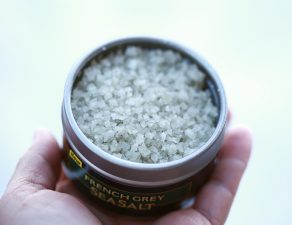 Eco-lovers beware: Artificial light at night may be associated with an increased risk for breast and prostate cancers.
Eco-lovers beware: Artificial light at night may be associated with an increased risk for breast and prostate cancers.
Next time your partner suggests you keep the lights on in your bedroom, tell him his prostate and your breasts are better off under the illumination of the moon, and your want to make sure your personal life is as sustainably safe and pleasurable as possible. The link between artificial light and prostate and breast cancer has been attributed to exposure to artificial light, with the recent study from Haifa University confirming that it’s not just exposure to outdoor or workplace lights, but light at home that elevates one’s risk for developing both diseases.
From a report in the Jerusalem Post:
The retrospective study was carried out on 1,679 Jewish and Arab Israeli women and the level of light to which they were exposed in their bedrooms – from street lamps outside the window, another room or night lights in the room.
Even the light of a TV set was examined as a factor. Almost half contracted breast cancer.
They were controlled for medical and family history, socioeconomic status, alcohol usage, number of children and other factors.
The increased risk appears to stem from long time exposure to artificial lights during the nighttime hours. This leads to a reduced production of the hormone melatonin, which then interferes with cell division. A disruption in cell division is one way cancerous growths develop.
Until the past few years, many people might not have thought of artificial light as a pollutant that could cause cancer. The researchers working out of Israel pointed out that it is “without doubt an irrevocable part of Western life, and its influence will only increase with the years,” but that it “can be easily be controlled.”
Shut off the lights in your bedroom: It’s yet another way for environmentalists to be ecosexy, whether love or sleep are on the agenda.
:: Image: Diana Blackwell
Read More Reproductive Health News:
GM Foods Shrinking Sexual Health in a Womb Near You
Israeli Sperm Count Drops a Whopping Forty Percent
Can a Male Birth Control Pill Save the Environment?
Natural Herbs for Breast Health and Enhancement
Tinamarie is a regular contributor to Greenprophet.com. Follow her @ModernLoveMuse. She blogs at www.tinamariebernard.com.




Does this mean that people who work nights, presumably exposing them to lots of artificial light, are at higher risk? How about those who are night owls? Or is it just when you go to bed that it should be dark?